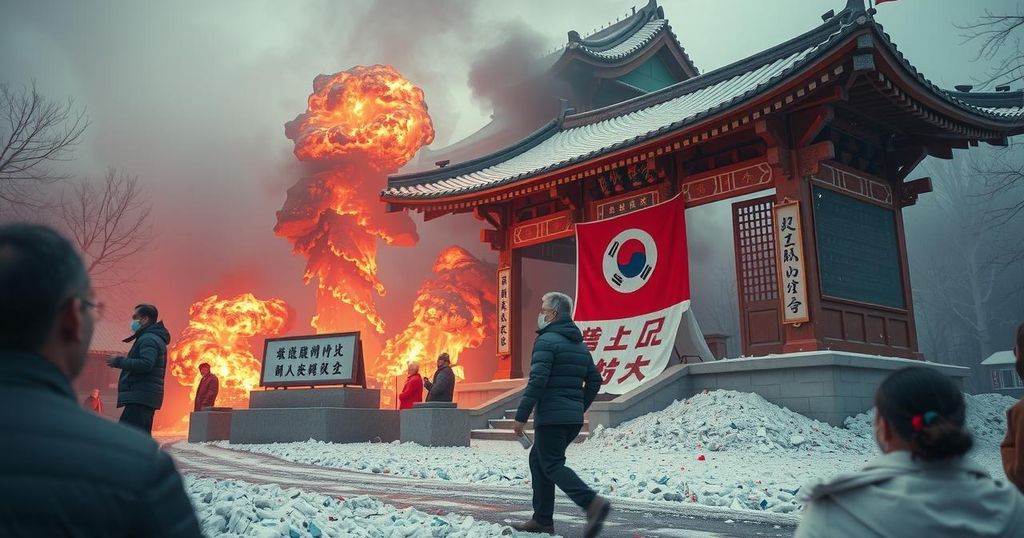South Korea’s Political Crisis: Democratic Party’s Decision Not to Impeach Prime Minister Han Duck-soo

The Democratic Party of South Korea has opted against impeaching Prime Minister Han Duck-soo following President Yoon Suk Yeol’s controversial martial law declaration. This strategic decision, announced by party leader Lee Jae-myung, reflects the challenges the nation faces amid political unrest and leadership instability. Prime Minister Han now must navigate the complexities of governance during this turbulent period.
The Democratic Party of South Korea has decided not to proceed with the impeachment of Prime Minister Han Duck-soo, despite the ongoing political unrest following President Yoon Suk Yeol’s controversial declaration of martial law. This decision, announced by party leader Lee Jae-myung, reflects the party’s response to the turbulent political landscape that has arisen since Yoon’s impeachment. As the acting president, Prime Minister Han now faces significant challenges in governing a divided nation. The implications of this decision are profound, considering the backdrop of instability permeating South Korea’s political framework.
Prime Minister Han Duck-soo ascended to the role of acting president after the impeachment of President Yoon Suk Yeol, who was removed following his contentious imposition of martial law on December 3rd. The Democratic Party’s choice to forego impeachment suggests a strategic approach to navigate the current political turmoil. This moment is pivotal for South Korea as it grapples with leadership questions while the citizenry expresses frustration over governance issues.
The political crisis in South Korea has been exacerbated by a loss of faith in leadership, presenting hurdles for effective governance as the nation strives for stability. The Democratic Party’s decision arrives at a time of heightened scrutiny and calls for accountability from its leadership, placing further pressure on Prime Minister Han to guide the nation through this critical juncture.
South Korea has recently experienced significant political turmoil, primarily stemming from President Yoon Suk Yeol’s impeachment due to his declaration of martial law. This political unrest has prompted urgent dialogue regarding the nation’s governance structure and the effectiveness of its leaders. The tumultuous situation has seen the Democratic Party of South Korea confronted with critical decisions regarding their leadership and the country’s future direction. Now more than ever, the functionality and stability of South Korea’s political institutions are under scrutiny as they navigate the repercussions of these events.
In summary, the Democratic Party of South Korea’s decision not to impeach Prime Minister Han Duck-soo represents a critical moment within the nation’s troubled political landscape. As the acting president following the impeachment of President Yoon Suk Yeol, Prime Minister Han is now tasked with steering the country amidst a backdrop of unrest and dissatisfaction. The implications of this decision will influence South Korea’s political trajectory in the period ahead, underscoring the urgent need for effective governance and stable leadership.
Original Source: www.devdiscourse.com








